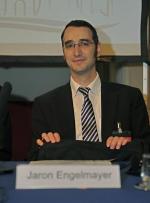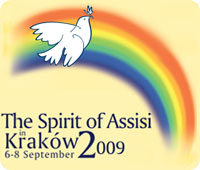
Engelmayer Rabbiner
|
As a Rabbi, belonging to the jewish religion and living in a place like Germany, the topic is highly complex and as fascinating as difficult.
First I want to start with a jewish perspective about strangers and being strange. Different from most other people the jewish people was built as being strangers, foreigners, outside home. In Egypt the descandants of Israel became physically a people, in the desert Sinai they got the Torah and became spiritually a people, having now a constitution. These events gave the jewish people a staying impression, especially concerning the question of how to refer to strangers, as the Torah points out: „?????? ?? ??? ?? ???? ????? ???? ?????“ – „ You should love the strangers, since you were yourself strangers in the land of Egypt“. The Torah goes even further than that. Every one has heard about a very famous and important rule for life: „You should love your fellow being as yourself.“ These words come from Leviticus, the third book of the Torah. But less known is the fact, that with the same formulation the Torah expresses another commandment: „You should love the stranger as yourself!“ Several more times the Torah points out in form of commandments that we have to love the strangers, being aware of the difficulties a stranger has in a new environment and society.
Also throughout the jewish history, mostly being spread out all over the world, being strangers or being seen as strangers, shaped the consciousness of the jewish people. How did it succeed to stay a people, being without country and unity for 2000 years? By keeping and caring for a clear jewish identity. As there is a famous saying: „More than the Jews kept Shabbat, Shabbat kept the Jews…“ Sticking to the Torah and the tradition save the jewish people from assimilating and disappearing.
On the other hand, and here we come to the other side of the same coin: That does not mean being disconnected from the environment in order to keep this identity. It does not mean building a so called „parallel society“, in order to survive as an own culture. It needs the differentiation between assimilation and integration. Assimilation means to become the same as the environment, by adaptation. Integration means becoming familiar with the structure of the environment, accepting the constitution and the laws of the place you live in, but still being able to keep an own culture, not seeing it as a seperation of the society surrounding, but more as an additional enrichment of it.
In Germany and in Western Europe we live in a modern and open world, where it is important to have a clear identity, knowing where belonging to, on the other hand not to be seperated from the world surrounding, but to be part of it, accepting its laws, and being open to different views, perspectives and cultures.
|

